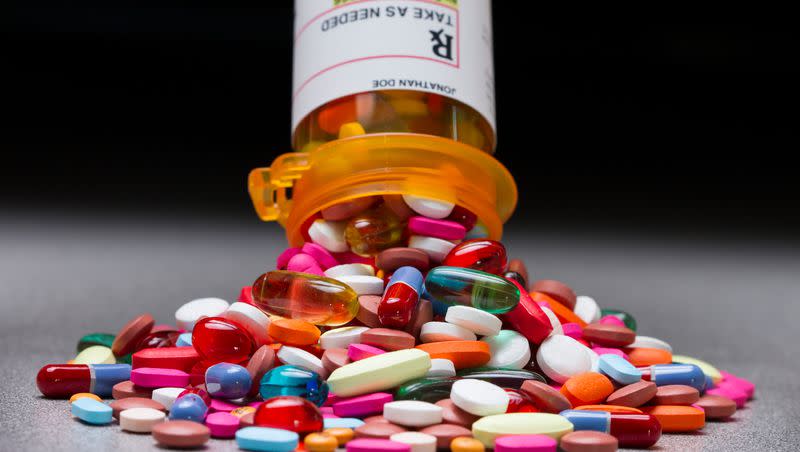Opinion: Affordable prescriptions aren’t impossible. This is how we get them

If you’re concerned about increasing health care costs, rest assured that Congress is hard at work making things worse. Legislation moving through both chambers in Congress would add more big-government regulation to pharmacy benefit managers, who use their economies of scale to negotiate discounts with drug companies. They are the only players in the pharmaceutical supply chain with the financial incentive to bring prescription prices down, but Democrats don’t want to let the free market work. And the kicker is that Republicans are going along with them.
The Senate Finance Committee recently advanced legislation taking important market tools away from pharmacy benefit managers, which currently enable them to save the country an estimated $145 billion each year on health care expenditures. Only Sen. Ron Johnson, R-Wis., stood up for free market principles and voted no.
But hopefully, more lawmakers are starting to understand they can’t cede health care policy to Democrats like Bernie Sanders, whose goal is to implement socialized medicine.
Indeed, Sen. Mike Lee, R-Utah, also understands that competition — not government price controls — is the only effective means to lower prices. He’s introduced the Biosimilar Red Tape Elimination Act to help the over 37 million Americans with diabetes for whom insulin is critical.
Related
A biosimilar is a biologic medical product that is almost identical to an original product but is manufactured by a different company and often at a lower price. According to a 2018 report from the ADA Insulin Access and Affordability Working Group, more biosimilar products must be developed in order to see the price of insulin go down. Unfortunately, there’s an obstacle: the Food and Drug Administration. According to the report, “increased regulatory burden associated with the development of biosimilars is deterring manufacturers from producing biosimilar insulins.”
Even after drug manufacturers complete the mountains of paperwork to show that their biosimilar is clinically effective, they still have to jump through more bureaucratic hoops for those less expensive biosimilar alternatives to be deemed “interchangeable” with the original biologic medication.
The “interchangeable” designation means pharmacists can fill a prescription written for the original version with the biosimilar, much like they currently do for other types of medications with so-called generic drugs. It’s worth noting that the U.S. is the only country which has this extra “interchangeable” hurdle.
There is some good news for patients: the FDA finally approved two new biosimilar insulins. Investigators determined that products like these could be sold at a discount of up to 91 % or 94% from the cost of the original biologic. These are just now hitting the market or will be soon, and there are half a dozen more insulin products awaiting approval by the FDA to come to market in the next few years!
But, as is typical with Democrats, they’re not waiting to see how these newly approved drugs bring down costs. Instead, they’re trying to use the government to solve a government-created problem by introducing socialist price controls to cap the cost of insulin, passing on the extra cost to taxpayers and employers in the form of higher premiums.
Even worse, their bill would lock insulin prices into 2021 costs, effectively keeping these biosimilar generic drugs from lowering the market prices forever.
Increased free-market competition is the answer. To speed up the biosimilar insulin approval process, lawmakers should get rid of the extra regulatory burden placed on drug manufacturers to prove their drug should be “interchangeable.” That is how to truly drive down the cost of insulin. Lee’s bill would streamline the current regulatory pathway for biosimilar approval and align the law with reality. How refreshing.
More Republican lawmakers should join Sens. Lee and Johnson in promoting the free-market approach, the only mechanism that actually works. They should never help Democrats achieve their goal of government-run health care. Instead, they should work to get government out of the way of market solutions.
Before lawmakers enact any legislation, they must ask themselves, “Would the proposed policy empower the private sector to lower overall health care costs?” If not, they need to reconsider.
Government can help give the public more cost-effective options by decreasing regulations, whether they come from the FDA or Congress itself. They should say “yes” to the free market.
Ann Marie Buerkle is a former nurse and congresswoman who served as the commissioner and acting chairwoman of the Consumer Product Safety Commission.

